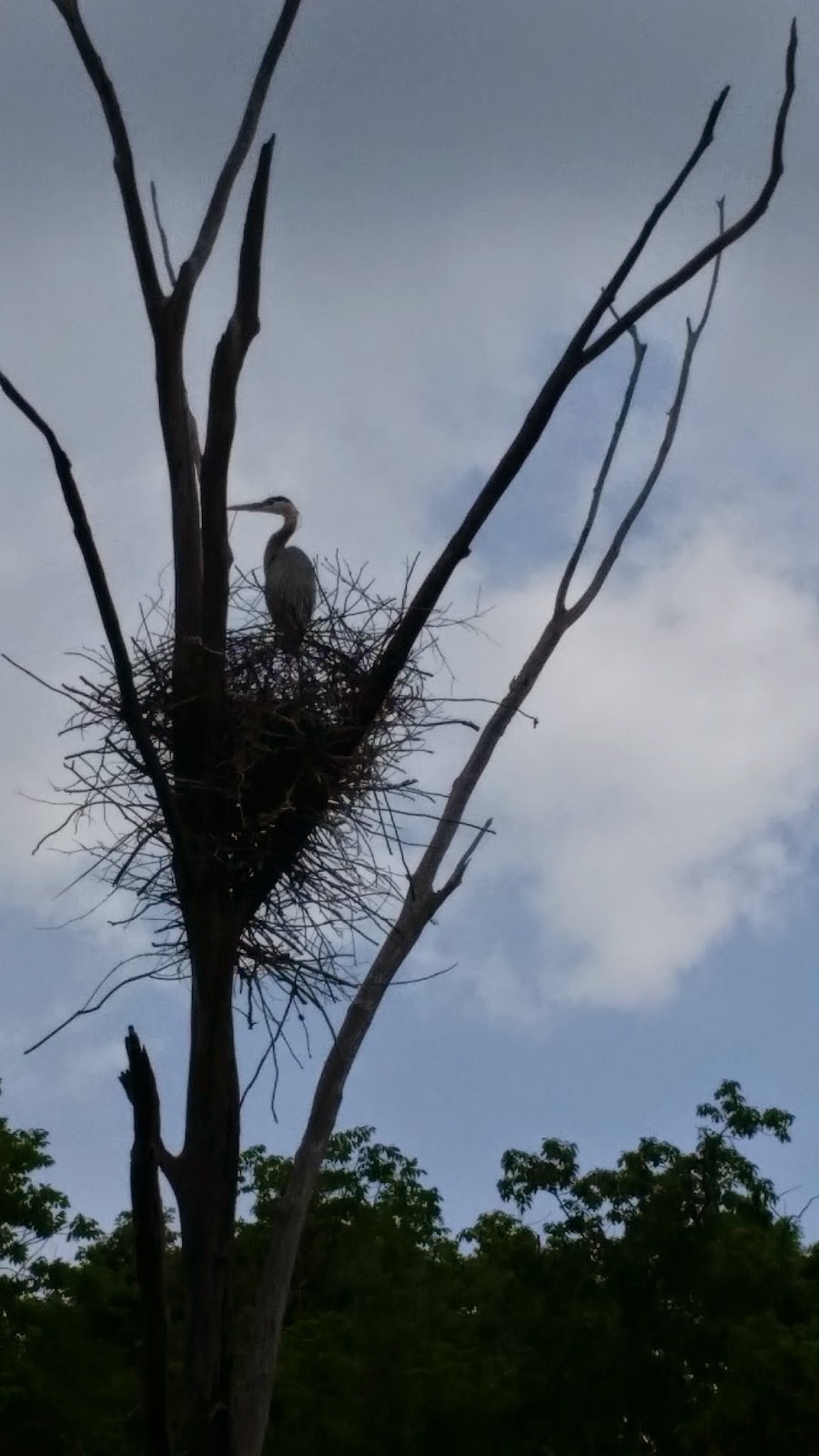We canoe-camp the Tellico Blueway - a pristine, unspoiled 11-mile paddle along the Tellico River. These stump-filled waters are too treacherous for large motorboats, but ideal for serene canoeing.
The trip starts as a narrow channel, wild roses grow along the river banks, and, as the waterway gradually widens, we pass cattails and tall, light-brown limestone bluffs with gnarled cedars clinging to the rock.
Before lighting the fire at our primitive campsite, we watch long-jawed orb-weavers at work in the canopy. There is no-one else within miles. Next day the river widens, with nesting ospreys and great blue herons.
Most surprising of all - this is Memorial Day weekend. About 800,000 people will have visited the Smokies in the month of May, but Stephine and I are alone in doing this.





